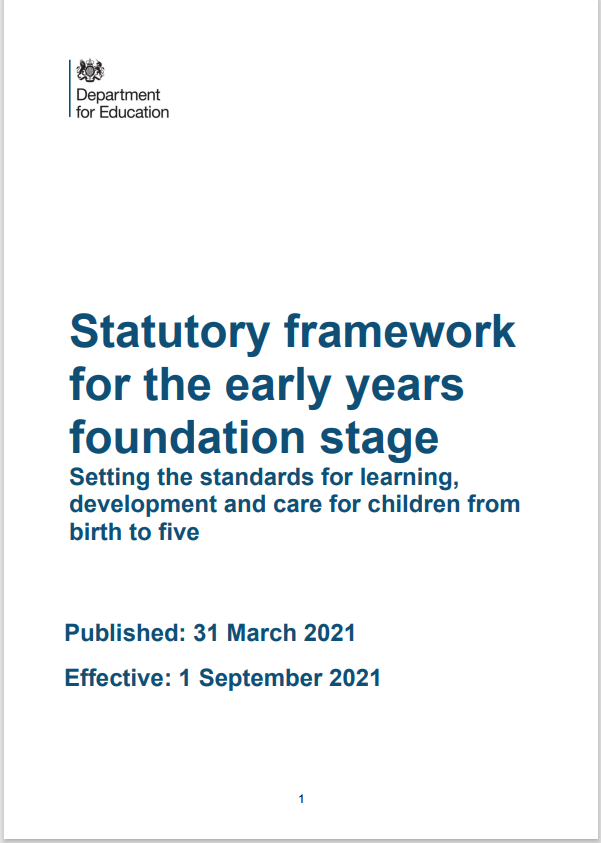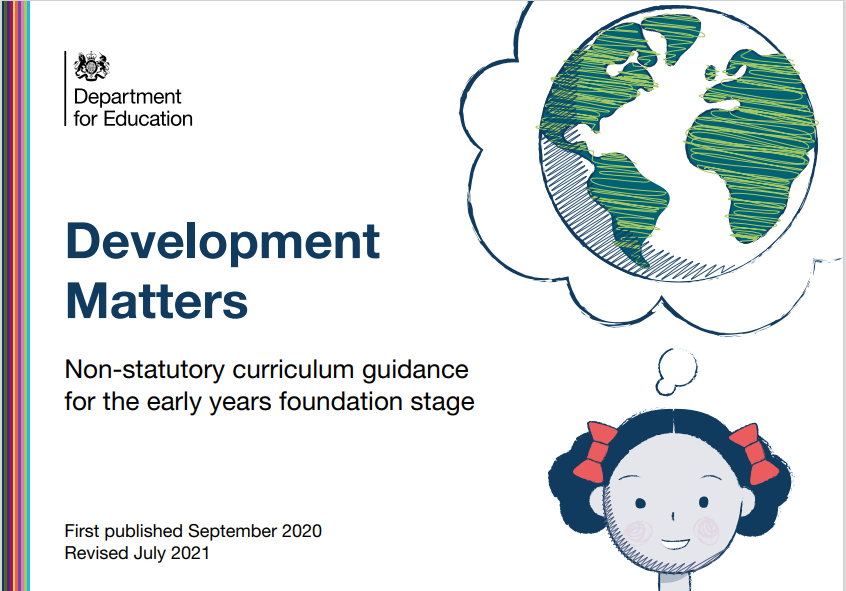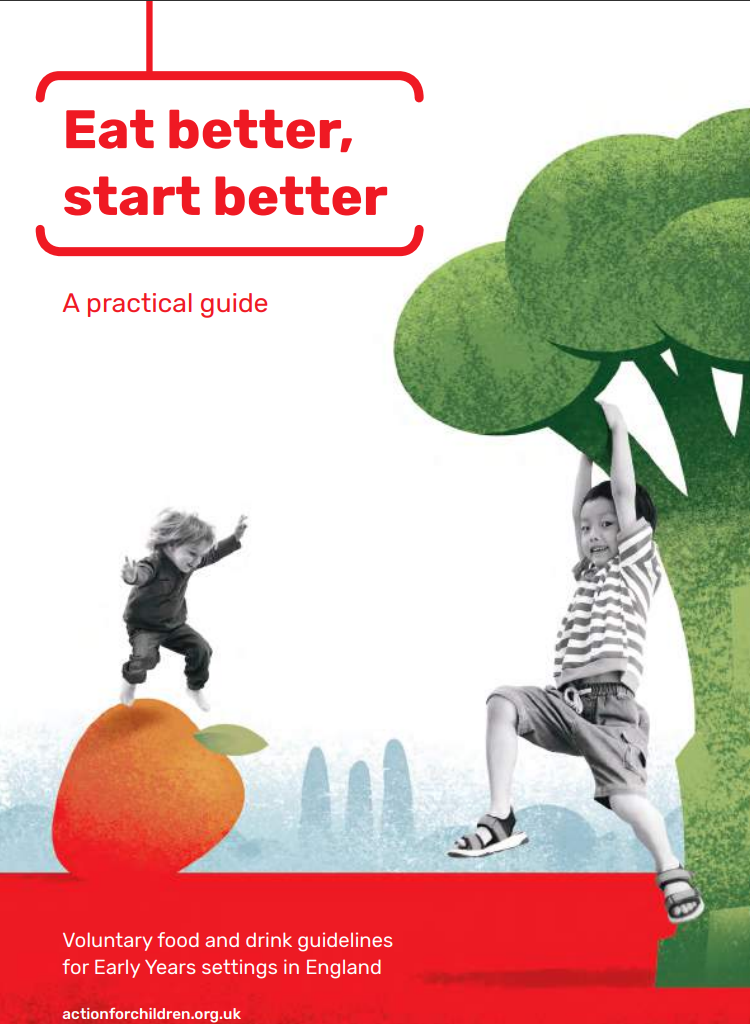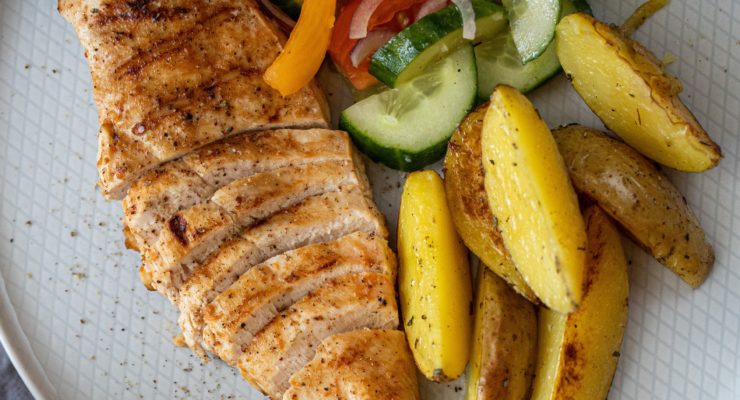Food and Nutrition Standards for Early Years Settings
Statutory Guidance
The early years foundation stage (EYFS) statutory framework outlines the standards that school and childcare providers must meet for the learning, development and care of children from birth to 5. It was last updated in March 2021. The full document can be found in a link at the end of this page.
Food and drink
3.48. Where children are provided with meals, snacks and drinks, they must be healthy, balanced and nutritious. Before a child is admitted to the setting the provider must also obtain information about any special dietary requirements, preferences and food allergies that the child has, and any special health requirements. Fresh drinking water must be available and accessible to children at all times. Providers must record and act on information from parents and carers about a child’s dietary needs.
3.49. There must be an area which is adequately equipped to provide healthy meals, snacks and drinks for children as necessary. There must be suitable facilities for the hygienic preparation of food for children, if necessary including suitable sterilisation equipment for babies’ food. Providers must be confident that those responsible for preparing and handling food are competent to do so. In group provision, all staff involved in preparing and handling food must receive training in food hygiene. In addition, section 4 of ‘Example menus for early years settings in England’ includes guidance on menu planning, food safety, managing food allergies and reading food labels, which staff preparing food will find helpful in ensuring that children are kept safe.
Non-Statutory Guidance
Development Matters provides non-statutory curriculum guidance for EYFS. It was last updated in July 2021. The full document can be found in a link at the end of this page.
3 and 4 year-olds will be learning to:
- Show an increasing desire to be independent, such as wanting to feed themselves and dress or undress.
- Start eating independently and learning how to use a knife and fork.
Examples of how to support this:
- Provide babies and toddlers with lots of opportunities to feed themselves.
- At meal and snack times, encourage children to try a range of foods as they become more independent eaters. Encourage children to help with carrying, pouring drinks, cleaning and sorting.
- Encourage young children’s personal decision-making by offering real choices – water or milk, for example. They can comment on how to eat healthily, listen to children’s responses and develop conversations about this.
- Encourage good eating habits and behaviours, such as not snatching, sharing and waiting for a second helping.






